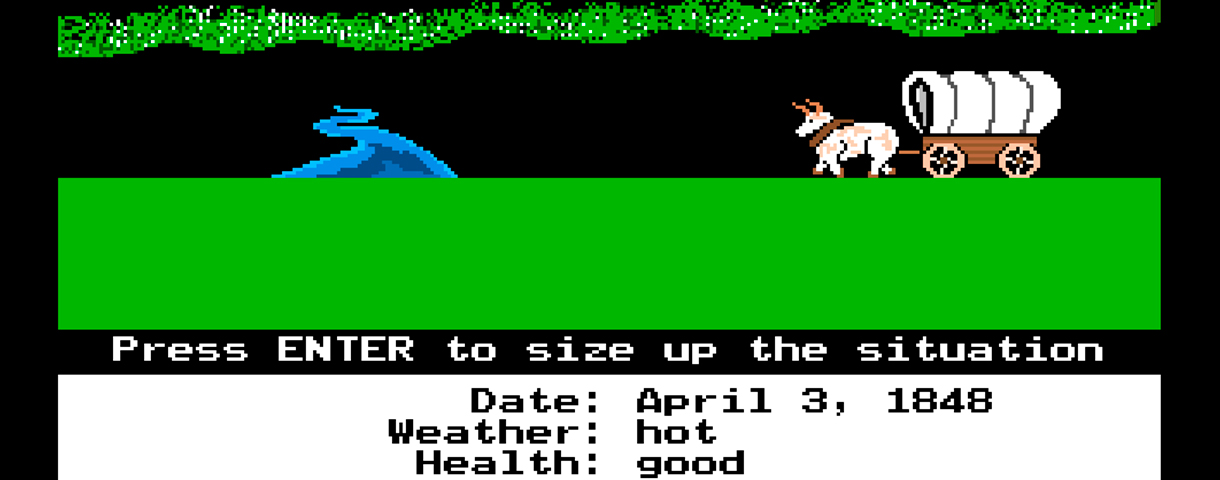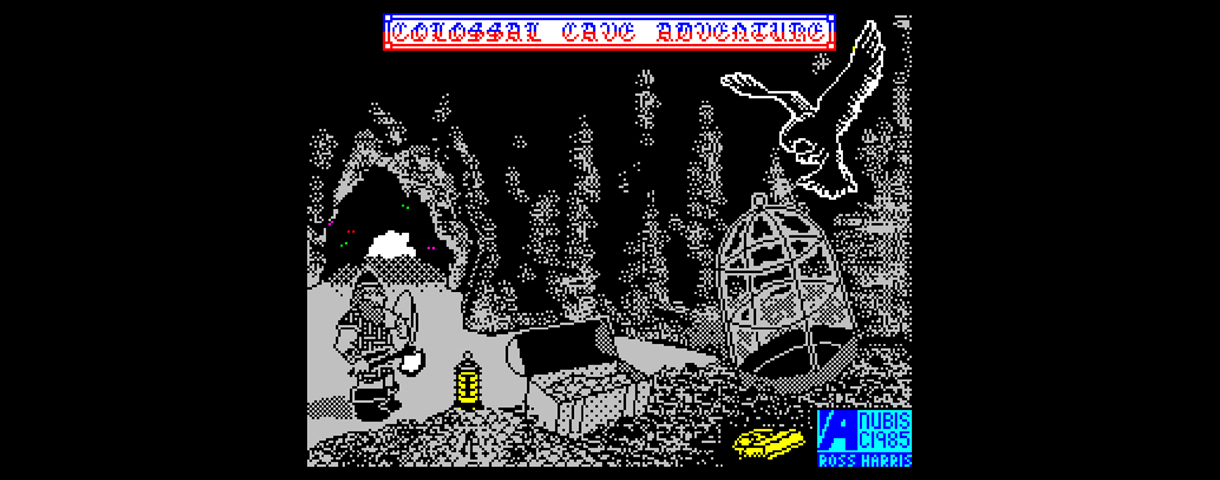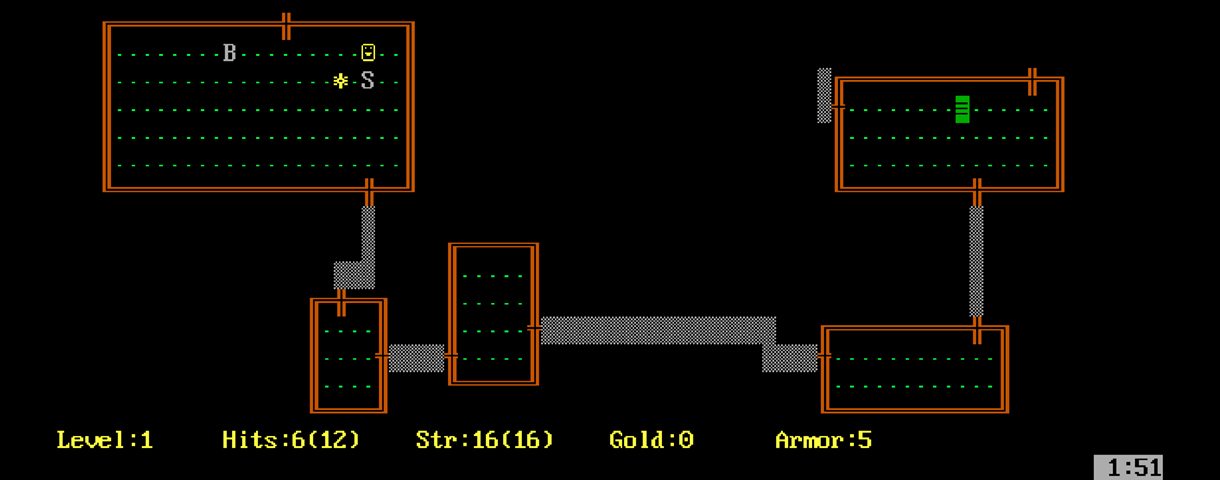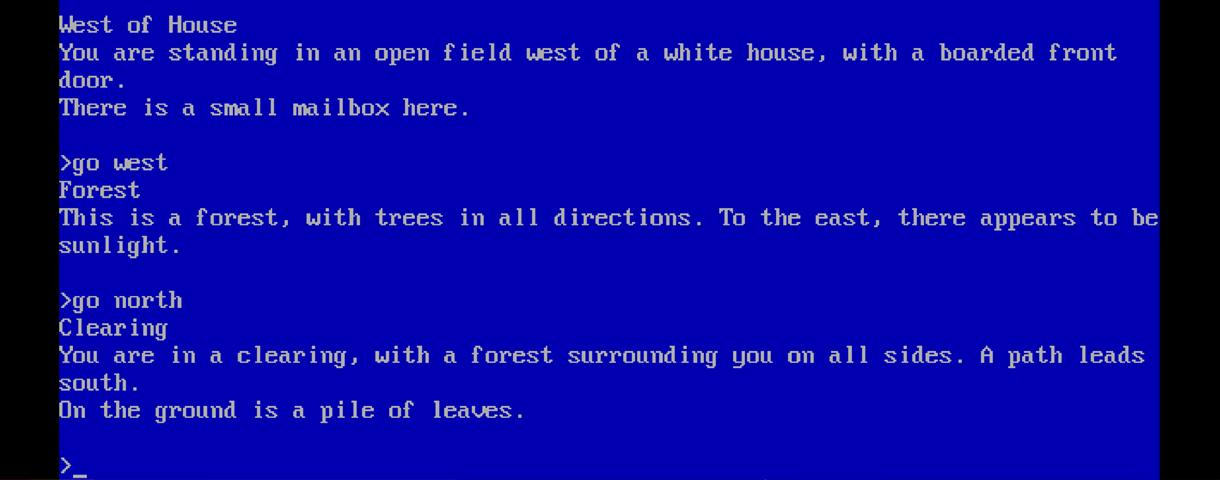The 50 most important PC games of all time
They changed how we make games, how we play games, and they changed us.

Spacewar!
Released: April 1962 | Developer: Steve Russel, Martin Graetz, Wayne Wiitanen
Why it's important: Not quite the first computer game ever, but the first to establish that they could exist as more than just Tic-Tac-Toe style programming experiments. Playable on the world's first "minicomputer" (which was not quite so mini).
In the beginning (1961), darkness was upon the face of the deep. Steve “Slug” Russell at MIT said “Let there be light” and created a sun and stars and gravity. Around that sun he put two spaceships, locked in an endless struggle, and he called it “Spacewar!” and it was good. So very very good.
In 1968 a student at University of Utah saw this game and wondered if he could make it coin-operated like the mechanical games at the amusement park where he worked in the summer. He got a job at Ampex and on the side made his own version of Spacewar out of chips borrowed from work. He called his game “Computer Space” and when released in 1971 it became the first mass produced video arcade game in history. The next year he started Atari. His name is Nolan Bushnell.
In 1973, Larry Rosenthal had just graduated with a masters in electrical engineering and wasn’t sure what to do with his life. He had seen “Spacewar!” at MIT and had also seen Nolan’s rather crude adaption “Computer Space”. He decided he could do better. He spent the next several years designing and building his own 12 bit computer from scratch along with a patented vector monitor system. When completed he showed off his amazing Spacewar playing machine (running in a suitcase) to all the major game makers and they all turned him down. Finally, in the winter of 1976, he pitched to an unknown Pong clone maker called “Cinematronics” and finally found a receptive audience. They renamed the game “Space Wars” and released it in the fall of 1977. “Space Wars” beat out every game by the industry giants Atari and Bally/Midway to become the #1 selling arcade game in 1978.
I played “Space Wars” in my local arcade around that time. It was the first assembly language game I wrote for my Atari 800 as a high school kid in 1981 and it helped fuel my passion for programming and video games. That passion ultimately led me to Microsoft to build their game business and launch the original Xbox. — Ed Fries

The Oregon Trail
Released: December 1971 | Developer: MECC
Keep up to date with the most important stories and the best deals, as picked by the PC Gamer team.
Why it's important: One of the few games to actually make learning fun, as well as the first survival simulator. Pity kids in the UK who had to endure stuff like Mangonel instead, and a lifetime of witch-related nightmares courtesy of Granny’s Garden.
To this day, I'm not sure whether The Oregon Trail is the greatest educational game ever made or the greatest con pulled on educators since the dawn of the public school. Repeatedly throughout grade school, I would be set in front of an Apple IIe, handed a worn floppy disk, and told to play this game so that I could learn something about America's settlers.
What I learned was that death was lurking for the settlers literally everywhere, and that you could only carry so much freshly-killed meat, but that never stopped anyone from slaughtering a forest's worth of animals by spinning around in a circle with a rifle. Every river was just waiting to carry someone away. You would never reach the next settlement or fort before somebody starved, and every fever was probably fatal. To this day I cannot watch a movie set in the West in the 1800s, including Westerns, without having a vague, unfocused anxiety that someone is about to drop dead of typhoid.
And we loved it. Far from making us sensitive or understanding of the plight of the settlers, we rejoiced in their misfortune. In some ways, Oregon Trail is the precursor to the modern survival roguelike, where the real point of the game is the misadventures that happen on your way to failure. We'd laugh at people getting ripped-off by thieves and losing their precious supplies, or dying from a random snakebite.
Yet, the fact that I remember this, the fact that Oregon Trail imparted a lesson about the harsh caprice of the journey west that I will never forget as long as I live, suggests that the game was doing something right. What most educators want is to make kids think about something other than themselves, to be able to see the world through someone else's eyes. Oregon Trail may have been a warped and unintentionally hilarious window into the past, but it was a window nonetheless. — Rob Zacny

Colossal Cave Adventure
Released: 1976 | Developer: Will Crowther, Don Woods
Why it's important: Both a pioneer in the adventure game world, and a direct inspiration for many developers that followed. It gave us Sierra Online, and laid out a basic template for early narrative games. Also invented mazes of twisty little passages, all alike.
Nobody really knew what computer games could be back in 1976. Were Pong and Spacewar! really as good as it got? Colossal Cave Adventure showed the potential of games for letting us explore whole new worlds, starting from a virtual version of the actual Mammoth Cave in Kentucky, expanding out to be a brand new fantasy environment inspired by Crowther’s visits there, and finally given a much heavier Tolkein-esque overhaul by Woods to make the game we now know.
This kickstarted the adventure market, most notably leading to Ken and Roberta Williams forming Sierra On-Line, and ultimately working with IBM to create a showpiece game for their new IBM PCjr platform. That game was King’s Quest—a graphical adventure pioneer. It also led to the creation of Infocom’s Zork, and by extension many games that proved stories had a place in games instead of just on attract screens and tucked away in the manual—particular classics including A Mind Forever Voyaging and Trinity.
Colossal Cave Adventure’s legacy also spread to other more ambitious games, including MUDs (Multi User Dungeons) that directly led to the invention of MMOs, from DikuMUDs like Everquest to the mighty World of Warcraft. Might all of these things happened anyway? Perhaps. But in our reality, they all owe a debt to Will Crowther’s love of caving, and his desire to share that experience with his daughters in the comfort and safety of virtual space. — Richard Cobbett

Rogue
Released: 1980 | Developer: Michael Toy, Glenn Wichman, Ken Arnold
Why it's important: Along with inspiring huge games like Diablo, Roguelikes have recently become a dominant force in the industry—breaking down predictability, cranking up the challenge, and bringing back mystery and exploration instead of canned levels.
Oddly, for the longest time, Rogue really wasn’t important. But it should have been! It created the idea of the emergent RPG, with worlds and challenges designed by fate and random number seeds instead of hand-crafted by designers. Its ideas showed up now and again, most notably in Nethack and Blizzard’s Diablo, but it’s only in recent years that the world has really grasped the power and beauty of what ‘roguelikes’ can do—moving the action out of dungeons, and combining it with the best of many other genres to create games like FTL, The Binding of Isaac, and Spelunky. These games offer the best of just about every procedural world by combining the surprise of random generation and the risk/reward of gambling (will that potion heal you, or turn you into a chicken? Are you desperate enough to find out?) with satisfying learning curves that still let you feel like you’ve mastered something.
At the same time, the combination of elements can still offer surprises and nasty moments for even the most dedicated player, hundreds and hundreds of hours into any game. Nethack in particular (an evolution of Hack, itself an evolution of Rogue) is one of the most complex games this side of Dwarf Fortress, and not for nothing did it spawn the phrase ‘The Dev Team Thinks Of Everything’. Any time you play a game whose rules are complex enough to ask “Yes, but what happens if you DO hit the Beholder in the face with a custard pie?” you’re playing a game that probably owes at least some debt to Rogue—a game finally getting its long overdue dues. — Richard Cobbett

Zork
Released: 1980 | Developer: Infocom
Why it's important: The text adventure that defined adventures for a whole new generation. Its success let Infocom hone the art with other classics like The Hitch-Hiker’s Guide To The Galaxy, A Mind Forever Voyaging, Trinity and Planetfall. And Leather Goddesses of Phobos.
You are sitting in a pre-teen's bedroom. Outside the window, children can be heard playing in the summer sun. There is an Atari 800 here, connected to a small TV. There is an exit to the West.
>Play Zork
You spend hours in front of the screen, finding hidden passageways, collecting items, avoiding grues. You find yourself in a maze, on top of a flood control dam, in a stone barrow. It will be thirty five years until you find out that "barrow" meant a kind of tomb, not a big wheelbarrow. But for now, you are confused, and don't know why someone would make one out of stone.
>W
You do not exit. You almost never leave this room, except for meals. This is how you spend the summer of your thirteenth year. Playing Zork. Collecting clockwork canaries. Typing in random swear words to see what it would say. ("Such language in a high-class establishment like this!") I don't want to depress you, but this is probably the greatest summer of your life. Also, much of your career will be spent imitating this game. Good thing you didn't pirate it. — Tim Schafer

Wes has been covering games and hardware for more than 10 years, first at tech sites like The Wirecutter and Tested before joining the PC Gamer team in 2014. Wes plays a little bit of everything, but he'll always jump at the chance to cover emulation and Japanese games.
When he's not obsessively optimizing and re-optimizing a tangle of conveyor belts in Satisfactory (it's really becoming a problem), he's probably playing a 20-year-old Final Fantasy or some opaque ASCII roguelike. With a focus on writing and editing features, he seeks out personal stories and in-depth histories from the corners of PC gaming and its niche communities. 50% pizza by volume (deep dish, to be specific).

